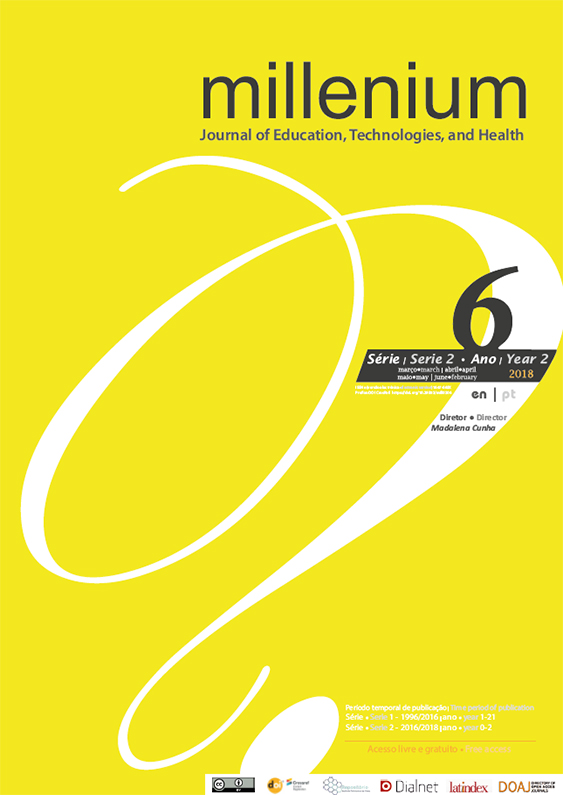Caregiver skills inventory: factorial structure in a sample of portuguese participants
DOI:
https://doi.org/10.29352/mill0206.04.00164Keywords:
Factor structure, Skills, CaregiversAbstract
Introduction: The Caregiver Skills Inventory translated from the original Caring Ability Inventory (CAI) by Ngozi Nkongho (1999) was designed to measure skills that are self-perceived by informal caregivers. Considering that some caregivers may not be able to care for dependants and that knowledge about this problem is still lacking, it is justified to develop research in this area.
Objectives: To evaluate the psychometric properties, namely the factorial structure and internal consistency; Self-perceived skills by informal caregivers.
Methods: A cross-sectional observational study with a methodological focus was carried out in a community context, in a sample of 214 participants (86.9% women), with a mean age of 51.07 years. 63.6% of the participants live in rural areas; 66.8% have a partner; 57.5% studied up to the 3rd cycle of basic education, 65.9% have a highly functional family, 51.9% are in a nuclear or simple family. The internal consistency was studied and a confirmatory factorial analysis of the Caring Ability Inventory of Ngozi Nkongho (1999) was performed.
Results: The internal consistency study of the Caring Ability Inventory by Ngozi Nkongho (1999), Spanish version of the Skills Inventory of the Caretaker of Berdejo & Parra (2008), confirmed the original structure, presenting three factors: Factor 1 - Knowledge (α=0.78); Factor 2 - Courage (α=0.65); Factor 3 - Patience (α=0.78). The Cronbach's alpha value for the CAI global was 0.84. Overall, 45.3% of the participants had acceptable skills to care for, 27.6% had very adequate care skills, and in 27.1% the skills were inadequate.
Conclusions: This research contributes to the study of the psychometric properties of the Caring Ability Inventory, in a sample of the Portuguese population. The comparative analysis of the findings of the present investigation with the results obtained by Ngozi Nkongho (1999) revealed that, in the present study, the factorial structure is maintained and that the internal consistency values in the Global Note coincide (α=0.84), but in Knowledge and Courage factors are lower and in the Patience factor higher. The assessment of an instrument to measure the abilities of caregivers empowers nurses to implement their assessment and measurement in clinical practice in order to identify the most vulnerable clusters, that is, the groups of caregivers with less skill and to elaborate a proposal for intervention in terms of aid/formal intervention.
Downloads
References
André, S., Cunha, M., Duarte, J. & Students 24 CLE (2015).The Importance of Palliating: Implications For Overload. Turkish Online Journal of Educational Technology, Special Issue for INTE, 628-634.
Berdejo, F., & Parra, A. (2008). Nivel de habilidad del cuidado de los cuidadores informales de pacientes con alteración neurológica. Tesis de pregrado. Bogotá: Pontificia Universidad Javeriana.
Bica, I., Cunha, M., Andrade, A., Dias, A., Ribeiro, O. et al. (2016). O doente em situação paliativa: implicações da funcionalidade familiar na satisfação dos familiares face aos cuidados de saúde. Servir 59, 4, 31-35.
Costa, M. da G.F.A., Nunes, M.M. de J.C., Duarte, J.C., & Pereira,
A.M.S. (2012). Conhecimento dos pais sobre alimentação: construção e validação de um questionário de alimentação infantil. Revista de Enfermagem Referência, III Série - n.° 6, 55-68. Acedido em http://www.scielo.gpeari.mctes.pt/pdf/ref/vserIIIn6/serIIIn6a06.pdf
Diaz, C.A.E. (2014). Habilidad de cuidado en cuidadoras / es informales, region de magallanes, Chile. Tese de Doutoramento. Universidad de Concepcion Dirección de Postgrado. Facultad de Medicina.
Mayeroff, M. (1971). A arte de servir ao próximo para servir a si mesmo. [Trad. de Boselli CC]. São Paulo: Record, p.44-5.
Marôco, J. (2014). Análise estatística com utilização do SPSS. Lisboa: Edições Sílabo.
Montalvo, A., Flórez, I., & Stavro, D. (2007). Una mirada a la experiencia de cuidado de los cuidadores de niños en situación de discapacidad de la ciudad de Cartagena. Rev. Unicarta; 105(1), 73-78.
Moreira, I. (2001) O doente terminal em contexto familiar. Coimbra: Formassau.
Nkongho, N. (1999). The Caring Ability Inventory. In: Stricklland,
O.L. & Dilorio, C. (eds) (1999). Vol. 4. Measurement of nursing outcomes, measuring client self-care and coping skills. New York: Springer Publishing Company; p. 184-99
Pestana, M.H., & Gageiro, J.N. (2014). Análise categórica, árvores de decisão e análise de conteúdo em ciências sociais e da saúde com o SPSS. Lisboa: Edições Lidel.
Sequeira, C. (2007). Cuidar de Idosos dependentes. Diagnósticos e intervenções. Coimbra: Quarteto Editora.
Downloads
Additional Files
Published
How to Cite
Issue
Section
License
Authors who submit proposals for this journal agree to the following terms:
a) Articles are published under the Licença Creative Commons (CC BY 4.0), in full open-access, without any cost or fees of any kind to the author or the reader;
b) The authors retain copyright and grant the journal right of first publication, allowing the free sharing of work, provided it is correctly attributed the authorship and initial publication in this journal;
c) The authors are permitted to take on additional contracts separately for non-exclusive distribution of the version of the work published in this journal (eg, post it to an institutional repository or as a book), with an acknowledgment of its initial publication in this journal;
d) Authors are permitted and encouraged to publish and distribute their work online (eg, in institutional repositories or on their website) as it can lead to productive exchanges, as well as increase the impact and citation of published work
Documents required for submission
Article template (Editable format)





